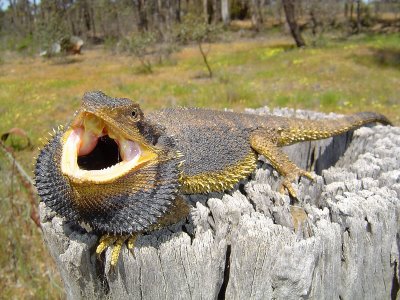Feeding Your Juvenile Bearded Dragon: A Comprehensive Guide
Feeding Your Juvenile Bearded Dragon: A Comprehensive Guide
If you are a new owner of a juvenile bearded dragon, you may be wondering what to feed your new pet. Nutrition is crucial during the early stages of a bearded dragon’s life, and a healthy diet is essential for their growth and development. In this post, we will discuss what to feed your juvenile bearded dragon, how often to feed them, and provide some tips on ensuring that they are getting all the nutrients they need.
What to Feed Your Juvenile Bearded Dragon
Bearded dragons are omnivores, which means that they eat both plants and animals. A healthy diet for a juvenile bearded dragon should consist of:
- 70% live insects (e.g. crickets, mealworms, dubia roaches)
- 20% vegetables (e.g. collard greens, kale, squash)
- 10% fruit (e.g. raspberries, blueberries, mango)
It is important to note that as your bearded dragon grows and matures, their diet will change. Adult bearded dragons require more vegetables and less protein, so you will need to adjust their diet accordingly.
How Often to Feed Your Juvenile Bearded Dragon
Juvenile bearded dragons should be fed between 2-3 times per day, while adult bearded dragons can be fed once per day. It is important not to overfeed your bearded dragon, as obesity can lead to health problems. A good rule of thumb is to feed them until they are no longer interested in eating, and to remove any uneaten food after 15 minutes.
Tips for Ensuring Your Juvenile Bearded Dragon is Getting All the Nutrients They Need
In addition to feeding your bearded dragon a balanced diet, there are a few other things you can do to ensure they are getting all the nutrients they need:
- Dust live insects with a calcium supplement (e.g. Rep-Cal Calcium with Vitamin D3) 2-3 times per week.
- Provide a UVB light source in their enclosure to ensure they are getting enough Vitamin D3.
- Ensure fresh water is available at all times.
- Avoid feeding your bearded dragon wild-caught insects, as they may be carrying parasites or pesticides.
- Do not feed your bearded dragon iceberg lettuce, as it has little nutritional value.
Conclusion
Feeding your juvenile bearded dragon a balanced diet is essential for their growth and development. By providing them with a varied diet of live insects, vegetables, and fruit, and ensuring they are getting all the necessary nutrients, you can help your bearded dragon thrive. If you have any questions or concerns about feeding your bearded dragon, consult with a veterinarian who specializes in exotic pets.





